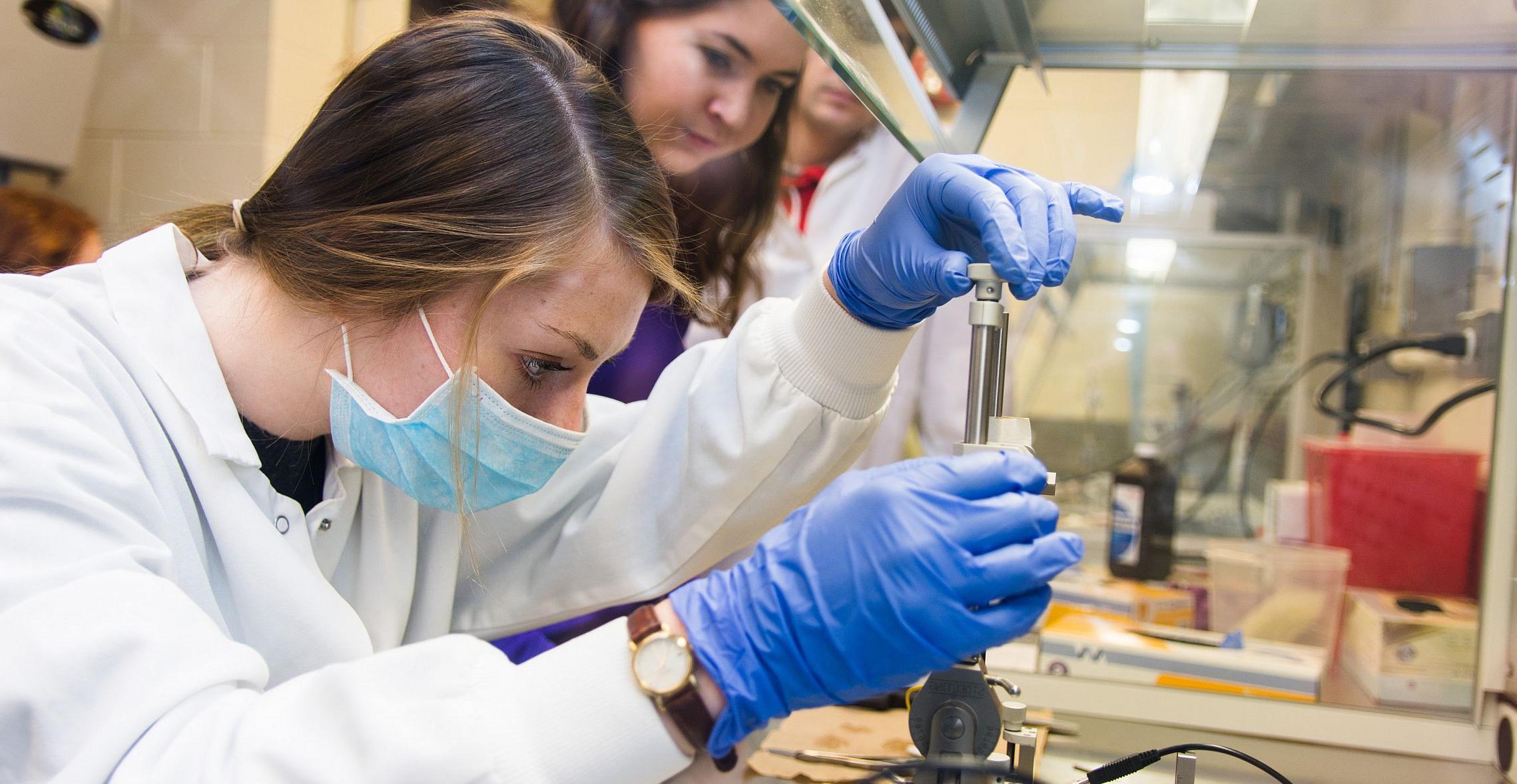Neuroscience Research
Neuroscience students at Carthage have the opportunity to conduct significant research, both with faculty and independently.
In the Classroom
Neuroscience courses provide students with extensive research experience. In Neuroscience Research Methods and Statistical Analysis (NEU 2500), students gain experience in experimental design, data collection, statistical analysis and interpretation, and manuscript preparation, as well as research techniques including surgery, histology, and pharmacological manipulations. In Neuroscience II: Cellular and Molecular Neuroscience (NEU 3950) and Neuroscience III: Neuroanatomy and Physiology (NEU 4100), students design, execute, and report on rigorous independent experiments.
In the Neuroscience Laboratory
Carthage’s Neuroscience Laboratory, used by both neuroscience and psychology students, includes a rodent colony where students can conduct research guided by faculty and independent projects. Equipment includes a signaled bar press, water maze, and 17-arm radial maze.
Students can also work in the laboratory studying; optic nerve regeneration with Professor Steve Henle and neurophysiology with biology professors Paul Martino and Justin Miller. Opportunities exist for research in behavioral neuroscience with Professor Dan Miller. Using pharmacology, histochemistry, and surgical approaches, students can investigate the ways in which the brain controls feeding and other motivated behaviors with Professor Sarah Terrill.
At Conferences
Each neuroscience student is strongly encouraged to complete an independent research project under the supervision of one of the neuroscience faculty. These projects may lead to presentation opportunities. Neuroscience students have been very successful in presenting their findings at local, regional and national conferences, including the Pavlovian Conference, the Society for Neuroscience Conference, and National Conference of Undergraduate Research.

